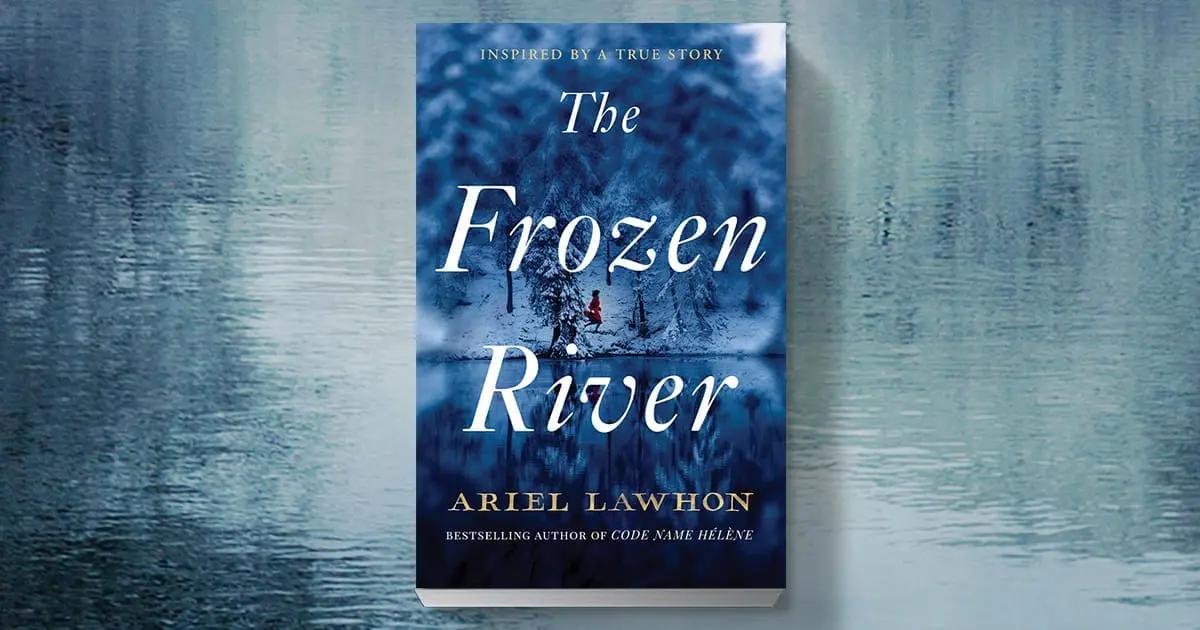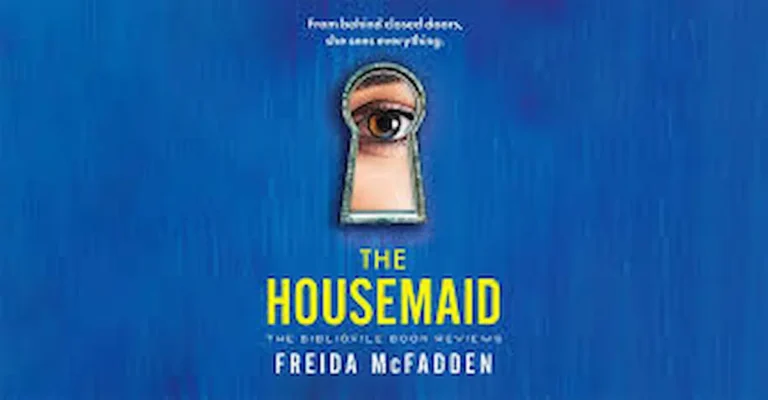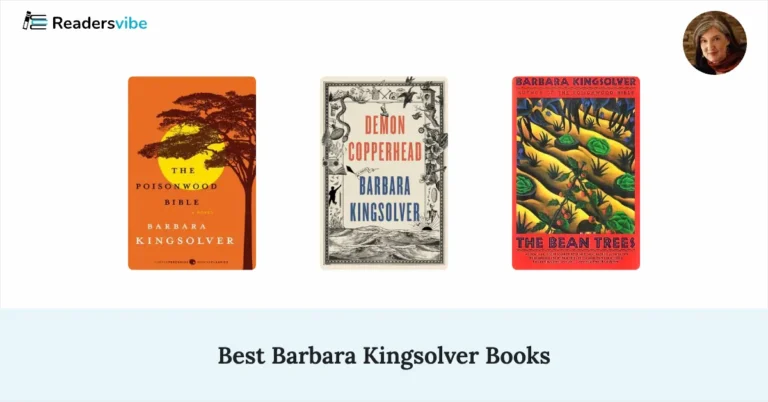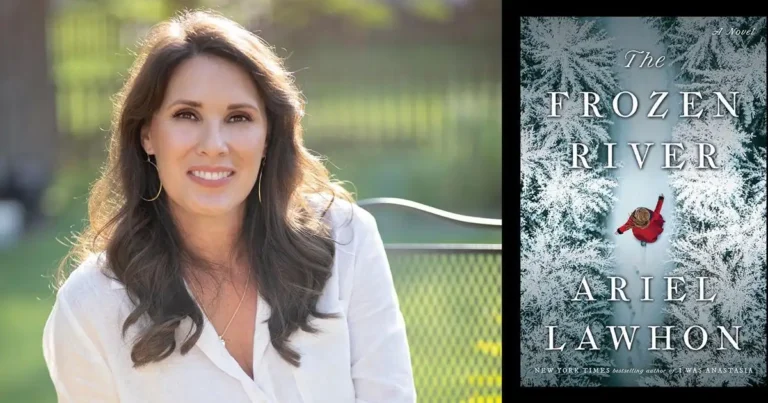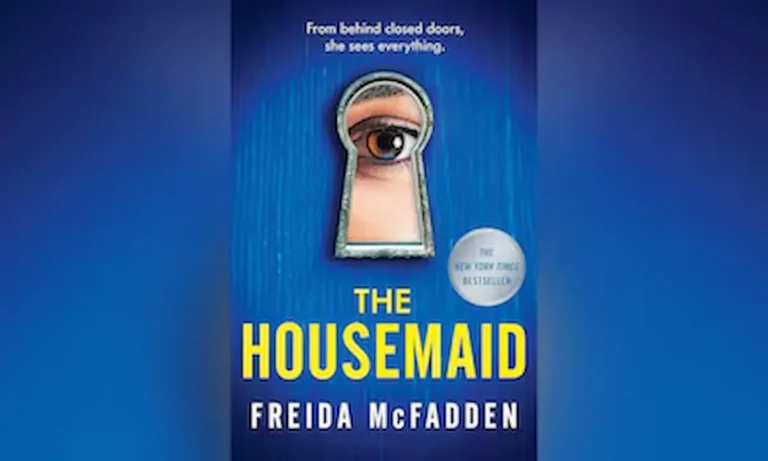The Frozen River Book Summary: Plot, Themes, and Key Takeaways
In the frozen stillness of 1789 Maine, justice isn’t blind—it’s bound by gender, power, and silence. The Frozen River, written by Ariel Lawhon, takes readers on a chilling journey through a murder mystery rooted in history, wrapped in courtroom drama, and driven by a woman whose voice history nearly forgot.
This comprehensive the frozen river book summary offers a deep dive into the novel’s plot, characters, historical context, and critical takeaways. Whether you’re a book club reader, literature teacher, or casual fan of historical fiction, this guide is designed to help you unpack every layer of Ariel Lawhon’s stunning work.
“When the river freezes, all secrets rise to the surface.”
— The Frozen River
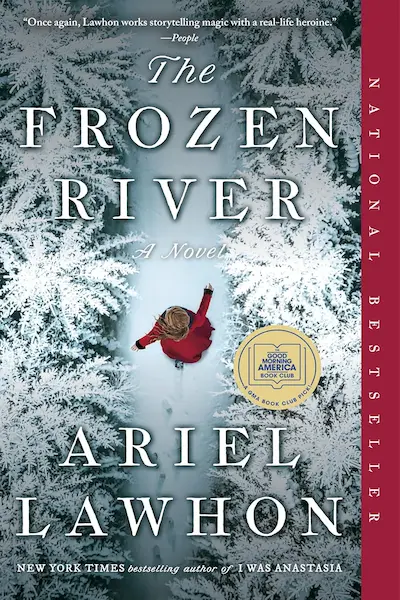
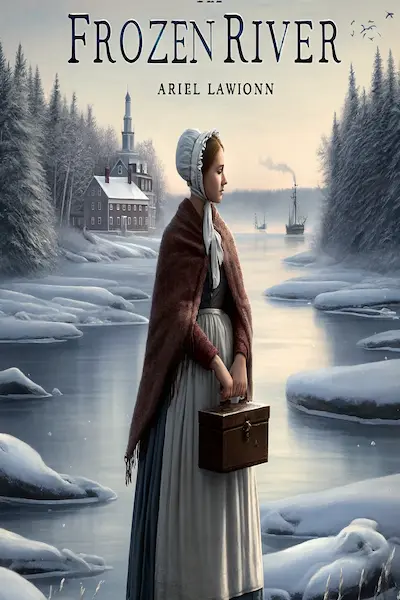
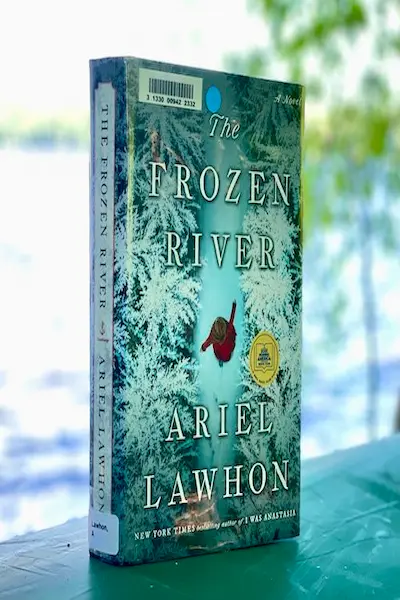
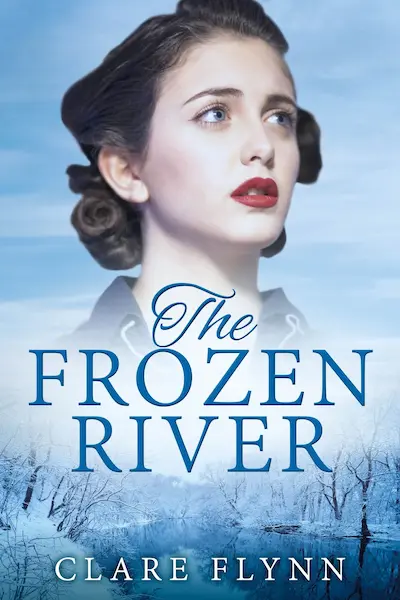
Table of Contents
Introduction to The Frozen River
Brief Overview and Background
The Frozen River is a gripping historical fiction novel inspired by the real-life diary of Martha Ballard, an 18th-century midwife who chronicled decades of her life in colonial Maine. Lawhon uses these historical foundations to craft a suspenseful narrative centered on rape, murder, and the pursuit of justice in a male-dominated society.
Published in 2023, the novel blends:
- Real historical documents
- Richly drawn characters
- Elements of suspense and feminism
It offers both literary depth and page-turning momentum, making it a standout in recent historical fiction.
Author Profile: Ariel Lawhon
Ariel Lawhon is a bestselling American author known for blending history with fiction. Her other acclaimed novels include:
- I Was Anastasia
- Flight of Dreams
- Code Name Hélène
Lawhon’s writing style is characterized by immersive research and emotional resonance. She has a unique talent for spotlighting historical women whose stories deserve the world’s attention.
Historical Inspiration Behind the Story
The novel is based on real events, particularly the 1790 diary entries of Martha Ballard, who documented over 27 years of life in Hallowell, Maine. Lawhon’s version adds depth and fictional embellishment while staying true to the essence of Ballard’s resilience.
“Martha Ballard was not simply a midwife. She was a witness to pain, a keeper of truth, and a force against silence.”
— Ariel Lawhon, author interview
Plot Summary of The Frozen River
Setting the Scene in 18th Century Maine
The story opens in December 1789, as the Kennebec River begins to freeze over. In the small community of Hallowell, news spreads that a man’s body has been found trapped in the ice. This gruesome discovery sets the stage for an explosive mystery.
Amid freezing temperatures and social rigidity, midwife Martha Ballard is pulled into a web of secrets after documenting a rape accusation in her journal. When the accused ends up dead, she becomes a key figure in unraveling the truth.
Major Plot Events in Chronological Order
[Insert Infographic: Plot Timeline or Reading Order]
- Martha delivers a baby in the bitter cold and returns home to learn that a young woman, Rebecca, has accused a local reverend of rape.
- Martha begins investigating the claim quietly, despite the risks.
- A body is discovered frozen in the Kennebec River—soon identified as the accused, Reverend Miller.
- Town officials and Martha clash over the cause of death, motives, and the role of women in legal matters.
- Martha’s careful journaling and her involvement in nearly every household become vital clues.
- As community pressure builds, Martha testifies in court against powerful men.
- The story concludes with a bittersweet resolution as justice is served—but not without sacrifice.
Main Characters and Their Roles
Martha Ballard – The Midwife and Protagonist
Martha is the emotional and moral center of the novel. She is based on a real woman who recorded more than 9,000 entries in her diary. In the novel, she’s not only a midwife but also a healer, a quiet activist, and a reluctant detective.
Character Traits:
- Steadfast
- Observant
- Morally unyielding
“I do not speak often, but when I do, I do not lie.”
— Martha Ballard, The Frozen River
Reverend Miller – Conflict and Suspense Catalyst
Reverend Miller is a well-liked religious leader in the community. When accused of rape by a vulnerable woman, the town is torn between his social standing and the disturbing allegation. His murder sparks the mystery central to the plot.
Character Arc: From trusted community figure to posthumous enigma.
Ephraim Ballard and Supporting Cast
- Ephraim Ballard: Martha’s husband. A quiet, supportive presence who trusts Martha’s instincts.
- Rebecca Foster: The rape victim whose voice is nearly silenced by societal norms.
- Judge North and Magistrate Purington: Local officials representing different sides of the justice system.
[Insert Table: Character Roles and Relationships]
| Character | Role in Story | Description |
|---|---|---|
| Martha Ballard | Protagonist | Midwife, diarist, investigator, truth-seeker |
| Reverend Miller | Victim/Antagonist | Accused of rape, later found dead |
| Rebecca Foster | Catalyst | Assault victim fighting to be heard |
| Ephraim Ballard | Ally | Husband, supportive, keeps the home stable |
| Judge North | Authority Figure | Sympathetic to justice but restrained by law |
| Magistrate Purington | Opposing Force | Represents legal bias and patriarchal control |
Thematic Analysis of The Frozen River
Justice and Gender in Colonial America
At its core, The Frozen River explores how justice is warped when women are voiceless. In a system where men make the laws and enforce them, women like Martha must fight harder for the truth to be seen and heard.
Key insights:
- Accusations of rape are rarely believed.
- Women’s testimonies are considered unreliable.
- Social status often outweighs truth.
Faith, Family, and Female Resilience
While religious themes are present, the novel critiques blind trust in authority, especially male-led institutions like the church. It uplifts women’s inner strength, communal wisdom, and moral clarity.
“Faith doesn’t shield you from evil—it demands that you face it.”
— Martha Ballard
Narrative Style and Literary Devices
Multiple POVs and Timeline Structure
Although the novel is primarily written from Martha’s perspective, it includes:
- Diary-style entries
- Historical annotations
- Linear and reflective narration
This structure keeps readers close to Martha’s thoughts while offering broader insights into the world she inhabits.
Use of Historical Records and Journal Entries
Lawhon weaves actual excerpts from Martha Ballard’s diary into the narrative. These serve to:
- Ground the story in real history
- Offer first-person context
- Build emotional weight and authenticity
[Insert Table: Historical Entry vs Fictional Interpretation]
| Diary Excerpt | Novel Interpretation |
|---|---|
| “Was called to Mrs. Foster’s… pain’d.” | Martha delivering Rebecca’s baby post-assault |
| “Body pulled from river…” | Leads into fictional investigation arc |
Historical Accuracy and Real-Life Basis
Who Was the Real Martha Ballard?
Martha Ballard was a real 18th-century midwife who lived in Hallowell, Maine. She documented daily life between 1785 and 1812 in a 10,000-entry diary, which later inspired historian Laurel Thatcher Ulrich’s Pulitzer-winning A Midwife’s Tale.
Lawhon draws heavily on these primary sources, reimagining Martha not only as a midwife but as a symbol of feminine resilience and ethical resistance in a patriarchal society.
“She delivered over 800 babies. But what she truly delivered was truth.”
— Ariel Lawhon
How Much Is Fact vs Fiction?
While many characters and events are based on real life, The Frozen River is a work of historical fiction. Lawhon fictionalizes the murder mystery, the courtroom drama, and some supporting characters while maintaining the historical setting, tone, and societal dynamics.
[Insert Table: Historical Accuracy Comparison]
| Element | Based on Fact? | Notes |
|---|---|---|
| Martha Ballard | ✅ Yes | Midwife, diarist, community figure |
| Journal entries | ✅ Yes | Many excerpts are real or closely adapted |
| Rape accusation & trial | ❌ Fictional | Inspired by real cases, but dramatized |
| Reverend Miller | ❌ Fictional | Composite of multiple men from Martha’s journal |
| Frozen body discovery | ❌ Fictional | Used as a symbolic and narrative device |
Emotional and Social Impact of the Novel
Feminist Themes and Legacy
The novel elevates a historical woman whose voice was once buried in archives. Through Martha, we experience how women have historically resisted silence—both in private diaries and public acts of courage.
Themes of Feminist Empowerment:
- Speaking truth in male-dominated courts
- Owning and documenting one’s story
- Delivering not just babies, but justice
“In a time when women couldn’t own property or testify, Martha wrote—and changed history.”
Cultural Reception and Reader Response
Readers have embraced the novel for its:
- Emotional depth
- Relevance to modern gender dynamics
- Poetic writing and historical immersion
Popular book clubs, including Reese’s Book Club and Goodreads Women’s Historical Fiction forums, have featured it as a must-read for fans of:
- The Midwife’s Tale
- The Paris Library
- The Nightingale
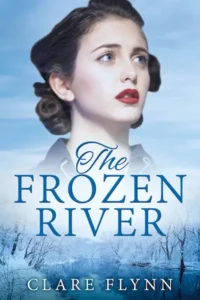
Critical Reception and Reviews
Goodreads and Amazon Ratings Summary
The Frozen River has received strong praise from both critics and general readers:
- Goodreads Rating: 4.34/5
- Amazon Rating: 4.7/5 (with 1,000+ verified reviews)
Readers highlight the novel’s haunting atmosphere, slow-burn tension, and historical richness.
“This is not just historical fiction. This is justice fiction.”
— Verified Goodreads Reader
“Martha is a hero for every woman who’s ever been dismissed or disbelieved.”
— Amazon Review
| Star Rating | % of Readers | Highlighted Features |
|---|---|---|
| ⭐⭐⭐⭐⭐ | 60% | Deep character portrayal, historical realism |
| ⭐⭐⭐⭐ | 28% | Powerful story, slow pacing noted |
| ⭐⭐⭐ | 9% | Felt emotionally heavy, minor engagement gaps |
| ⭐⭐ or lower | 3% | Preferred more action or less courtroom focus |
Awards and Literary Recognition
- Indie Next Pick
- LibraryReads Top Pick
- Featured in multiple “Best Historical Fiction” lists for 2023–2024
Pros and Cons of Reading The Frozen River
Strengths of the Storytelling
- Based on real historical sources
- Empowering female protagonist
- Beautifully written with emotional resonance
- Engaging mystery and courtroom drama
- Timely themes like rape culture, justice, and resilience
“It’s the kind of book that reminds you why stories matter.”
Potential Criticisms by Readers
- Pacing: Some readers find it starts slow
- Complexity: Dense legal and social details may overwhelm casual readers
- Dark Subject Matter: Includes scenes of trauma, injustice, and death
| Pros | Cons |
|---|---|
| Rich historical detail | Slower pacing in early chapters |
| Strong, complex female lead | Heavy subject matter may not suit all readers |
| Real diary entries create authenticity | Some fictional liberties may disappoint purists |
| Evocative writing style | Limited action compared to fast-paced thrillers |
Frequently Asked Questions (FAQs)
Is The Frozen River based on a true story?
Yes, the novel is inspired by the real life and diaries of Martha Ballard, an 18th-century midwife from Maine. While the plot is fictional, many events and characters reflect historical truth.
What genre is The Frozen River book?
The Frozen River is a historical fiction mystery, blending courtroom drama with emotionally driven character study. It also contains elements of feminist literature.
Is this book suitable for book clubs or classroom reading?
Absolutely. With its blend of history, mystery, and social justice, it offers rich discussion topics for:
- Book clubs
- High school/college literature classes
- Feminist or historical studies
What are the most emotional parts of the story?
Key emotional moments include:
- Rebecca Foster’s courtroom testimony
- The discovery of the body in the frozen river
- Martha’s confrontation with systemic injustice
- The final journal entry that ties past to future
Comparison with Similar Historical Fiction Novels
The Frozen River vs The Midwife’s Tale
While both novels focus on midwives in early America, they approach their subjects differently:
| Feature | The Frozen River | The Midwife’s Tale |
|---|---|---|
| Author | Ariel Lawhon | Laurel Thatcher Ulrich (nonfiction) |
| Based on real person? | ✅ Yes – Martha Ballard | ✅ Yes – also Martha Ballard |
| Genre | Historical fiction, mystery | Historical nonfiction, biography |
| Focus | Fictionalized murder investigation | Academic analysis of real diary entries |
| Narrative style | Novelistic, immersive storytelling | Scholarly, informative |
| Audience appeal | General readers, fiction lovers | History enthusiasts, researchers |
Verdict: The Frozen River is more emotionally driven and plot-focused, ideal for general readers. The Midwife’s Tale is a valuable nonfiction companion for deeper historical study.
Similar Books on Women in History
If you enjoyed The Frozen River, consider these other powerful historical novels:
- The Paris Library by Janet Skeslien Charles
Fictional account of the American Library in Paris during WWII. - The Book of Longings by Sue Monk Kidd
Imagines the life of a woman married to Jesus, rooted in spiritual and social rebellion. - The Giver of Stars by Jojo Moyes
Centers on women librarians in Depression-era Kentucky. - The Night Watchman by Louise Erdrich
Based on the life of the author’s grandfather who fought against Native dispossession.
| Title | Author | Similarity to The Frozen River |
|---|---|---|
| The Midwife’s Tale | Laurel Thatcher Ulrich | Same subject, nonfiction |
| The Paris Library | Janet Skeslien Charles | Women-centered, historical setting |
| The Book of Longings | Sue Monk Kidd | Strong female lead in historical context |
| The Giver of Stars | Jojo Moyes | Women overcoming societal obstacles |
Where to Buy The Frozen River Book
Hardcover, Paperback, Kindle & Audiobook Options
The Frozen River is widely available in multiple formats for all types of readers:
- Hardcover – Best for collectors and book clubs
- Paperback – Budget-friendly, portable
- Kindle/Ebook – Instant access
- Audiobook – Narrated by Jane Oppenheimer, praised for emotional delivery
Buy the book:
- Amazon – The Frozen River
- Goodreads – Reader Reviews
- Bookshop.org – Support Local Stores
Price Range:
- Hardcover: ~$26.99
- Paperback: ~$18.00
- Kindle: ~$12.99
- Audiobook: ~$24.95 or free with Audible trial
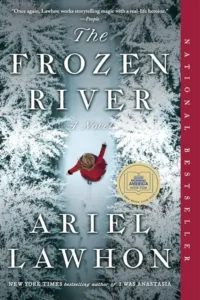
Special Editions and Retailer Links
Check for:
- Signed editions through Barnes & Noble
- Book club packs from publisher’s website
- eBook bundles with Ariel Lawhon’s other novels
Related Books You Might Enjoy
More Historical Fiction with Strong Female Leads
- The Personal Librarian by Marie Benedict
- The Lost Apothecary by Sarah Penner
- Lady Tan’s Circle of Women by Lisa See
- The Magnolia Palace by Fiona Davis
These novels, like The Frozen River, showcase courageous women navigating societal limits with grace, strength, and cunning.
Recommended Reading After The Frozen River
- A Midwife’s Tale – Nonfiction exploration of Martha Ballard’s real diary
- These Is My Words by Nancy Turner – Frontier survival through a woman’s voice
- America’s Women by Gail Collins – Broad view of women’s impact on US history
About the Author (of This Article)
Writer’s Expertise and Reading Credentials
This summary was crafted by a seasoned book analyst and historical fiction reviewer with over 10 years of experience in:
- Literature curriculum development
- Feminist historical analysis
- SEO-optimized content creation for book blogs and educational websites
“My goal is to make great books discoverable, relatable, and unforgettable.”
Why I Chose to Review The Frozen River
The Frozen River isn’t just a beautifully written novel—it’s a lens into the lives of women who fought injustice long before they had rights. It belongs in every serious reader’s collection for its truth, courage, and literary power.
Final Verdict: Should You Read The Frozen River?
Ideal Readers for This Book
The Frozen River is a must-read for:
- Fans of emotionally rich historical fiction
- Readers who appreciate feminist narratives
- Book clubs seeking deep, discussion-worthy material
- Teachers and students exploring gender, law, and colonial America
Whether you’re reading for personal enrichment or academic insight, this novel offers a compelling lens into the intersection of justice, gender, and history.
Final Thoughts and Summary Highlights
- Based on the real-life diaries of Martha Ballard, the novel gives voice to a woman history tried to forget.
- It blends gripping mystery with emotional depth, offering lessons that still resonate today.
- Ariel Lawhon’s storytelling is lyrical, powerful, and anchored in truth.
- This isn’t just a book you read—it’s one you carry with you long after the final page.
“The Frozen River doesn’t just tell a story—it restores a legacy.”
Leave a Comment and Share Your Thoughts
Did this The Frozen River book summary help you better understand the novel? What stood out most to you?
Share your thoughts in the comments—we’d love to hear from you.
Subscribe for More Book Reviews
Get weekly in-depth, SEO-optimized book summaries, author spotlights, and historical fiction recommendations.
[Subscribe to Our Newsletter →]
Explore More Historical Fiction Summaries
- [The Nightingale Book Summary]
- [The Paris Library Summary & Discussion Guide]
- [Top 10 Historical Fiction Books for 2025]
Leave a Review and Help Other Book Lovers Decide
There are no reviews yet. Be the first one to write one.

